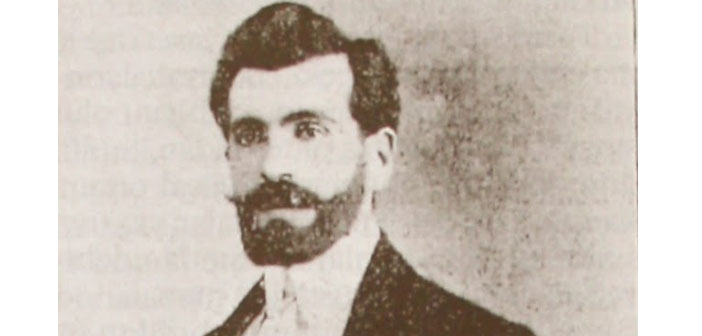‘Bu cinayetleri işlemeyeceğime göre istifamı kabul buyurun!’


O toplar öldürecek bir hayat arar… Asker
Veya muhâbir ve şâir, kadın, çocuk, hasta
Vazifesinde mi?
Hatta vücud-u emvata
Havale’i zarbât eyler…
Ezmek, öldürmek
Asıl vazife bu…
Her şey yalan ölüm gerçek.
Faik Ali Ozansoy
Payitahtın Kapısında

Bugün artık, yüz yıl önce yaşanmış olan Ermeni soykırımıyla, bu büyük insanlık trajedisiyle ilgili, çeşitli dünya dillerinde üretilmiş hatırı sayılır büyüklükte bir literatüre sahip olduğumuz söylenebilir. Her geçtiğimiz gün hızla büyüyen bu literatürde, etraflıca çalışılmış, bugün artık ince ayrıntılarına kadar bildiğimiz meseleler olduğu gibi, yeterince çalışılmamış, ne resmi tarih tezinin ne de bu teze karşıt araştırmalar üreten tarihçi veya araştırmacıların üzerinde durmadığı epey bir konu bulunmakta.
Bu yazıda, birkaç örnek dışında pek de çalışılmamış olan bir konu üzerinde, 1915’te Ermenilerin hayatını kurtaran cesur Osmanlı askerleri ve devlet adamları konusu üzerinde duracağız.
Bu cesur insanlar kimi zaman İttihat Terakki merkezinden gelen emirlere karşı çıkarak Ermenileri sürgüne göndermemiş, kimi zaman Ermenilere kalacak yer ve yiyecek sağlamış, kimi zaman da aldıkları ölüm tehditlerine rağmen Ermenilere kol kanat germişlerdir. Kütahya mutasarrıfı Diyarbekirli Faik Ali [Ozansoy] (1876-1950), işte bu cesur devlet adamlarından biriydi.
“Başkasını tayin edin, emirleri o uygulasın!”
1915 yılının Kasım ayıdır. Anadolu’nun büyük çoğunluğunda tehcir emri uygulamaya konmuş, Ermeniler kendilerine ait olan her şeyi geride bırakarak yollara düşmüştür. Ne ki Kütahya’da durum, ülkenin geri kalanının tam tersidir. İttihat ve Terakki Partisi’nin mutasarrıflık binası önünde topladığı grup “Gâvur mutasarrıf çık dışarı!” diye bağırmaktadır. Faik Ali, telgraf odasına çağrılır, arayan İstanbul’dan Talat Paşa’dır. “Şehrinizdeki Ermenilerin derhal Zor’a sevkini gerçekleştiriniz!” der Talat Paşa. Faik Ali karşı çıkar, kararında ısrarlıdır. Kütahya Ermenileri’nin şehir ekonomisine katkılarından, Müslüman ahalinin bu durumdan memnun olduğundan ve Kütahya’da herhangi bir asayiş sorunu bulunmadığından bahseder. Talat Paşa bir kez daha Ermenileri sevk etmesini söyleyince Faik Ali’nin verdiği cevap nettir: “Bu cinayetleri işlemeyeceğime göre istifamı kabul buyurun, başkasını tayin edin, emirlerinizi o uygulasın”. Talat Paşa tehcir olayının bu şekilde duyulmasını istemediğinden ve Faik Ali’nin ağabeyi ünlü şair Süleyman Nazif’in ricası üzerine göreve devam etmesine ses çıkarmaz.
Faik Ali Bey, mutasarrıf olarak görev yaptığı 1915’in Ocak ayından 1916’nın Mart ayına kadar Kütahya’dan tek bir Ermeni tehcir edilmez. Faik Ali, Ermeni çocuklarının eğitimine devam etmesi için yeni bir okul açılmasına destek olur, Ermeniler tarafından yerel yetkililerin gözüne girmek için Kızılay’a yapılan bağışlar kendi teşebbüsüyle fakir Ermenilere dağıtılır, korkudan din değiştirmek isteyenlere kendisi engel olur ve çevre vilayetlerden Kütahya’ya sığınan Ermenilere yer ve yiyecek yardımı yapar.
“Faik Ali Bey bir vahaydı”
31 Ekim 1918 tarihinde Kütahyalı A. Torosyan, Jamanak gazetesine gönderdiği bir mektupta Faik Ali Bey hakkında şöyle yazmaktadır:
“… Bütün Kütahya Ermenileri ve bölgedeki diğer bütün Ermeni muhacirler, her zaman saygı ve minnetle anacaklardır Faik Ali Bey ismini. Tehcir yolundaki Ermeniler yorgun bedenlerini dinlendirebilecek, dağılmış ruhlarını toparlayabilecek bazı vahalara rastladılar. Kütahya, Faik Ali Bey sayesinde işte o vahalardan biri oldu. O din, ırk, yaş ayrımı gözetmeksizin eşit bir şekilde herkese aynı sevgi, hassasiyet ve hizmeti gösterdi. Hiçbir karşılık istemeden, sadece vicdanının sesini dinledi. ‘Teşekkürünüzü sadece dua ederek gösteriniz. Benim için dua ediniz.’ Ne zaman minnettimizi göstermek istediysek işte bize böyle cevap verirdi, biz de susar kalırdık. Faik Ali Bey insani görevini yerine getirdiğine inanıyordu. Bu yücelik gerçekten de Türk’e saygınlık getirir: ‘Sadece bir dua’. İşte Faik Ali Bey’in tek isteği... Temiz, saf bir şahsiyetin doğal bir isteği.”
Bu mektuptan kısa bir süre sonra Kütahya Ermenileri, hayatlarını borçlu oldukları Faik Ali Bey’in anısına Kütahya Ermeni kilisesinin avlusuna bir “şükran kitabesi” koyar. Bu “şükran kitabesi”nde, “Ermeni halkını ıstırap dolu günlerinde koruyup kollayan ve insani bir tutum sergileyen mutasarrıf Faik Ali Bey anısına” diye yazılır.
Faik Ali, bu haberi duyar ve 9 Ocak 1919 tarihli Tasvir-i Efkar gazetesinde Kütahya Ermenilerine yazılmış bir mektup yayımlar: “(...) Kütahya Ermenilerine bu aralıksız süregelen sevgi ve muhabbetten dolayı tekrar tekrar teşekkür ederken hepinize bir şeyi hatırlatmak istiyorum. Evet, bu acize karşı kendinizce layık gördüğünüz bu hareketinizden başka daha büyük bir göreviniz olduğunu hatırlatmak isterim. Pekâlâ biliyorsunuz ki sizleri felaketler esnasında korumayı bir resmi görev ve bir insanlık görevi olarak addedip çalıştığım zamanlarda Kütahya’nın merkez ve çevrelerindeki Müslüman ahali hep birlikte benimle aynı fikri taşıyordu ve hatta başka vilayetlerden ve kazalardan o sel gibi akan kötü olaylardan düşe kalka kaçarak topraklarımıza sığınan sayısız, sınırsız Ermeni ailelerine kol kanat gerdiler. Gerek Kütahyalı Ermeniler, gerek diğer vilayetlerden kaçarak gelen Ermeniler, hepiniz malınızın, canınızın ve namusunuzun korunduğunu gördünüz. İşte bunu hiçbir zaman unutmamak en büyük vazifenizdir. Hayır, unutmamak yeterli değildir. O olayların ve faciaların halk tarafından yapılmadığını, birtakım hain vatan haydutları tarafından o cinayetlerin işlendiğini ve Türk vatandaşların o cinayetlere yüz çevirerek katılmayacak kadar haysiyetli olduğunu bütün dünyaya en gür sesinizle duyurmak sizin vicdani bir vazifenizdir...”
Faik Ali, Talat Paşa’dan gelen emirlere “bu cinayetleri işlemeyeceğim” diyerek karşı koymuş ve katliamların -İttihak Terakki’yi kastederek- “birtakım hain vatan haydutları” tarafından işlendiğini dile getirmişti. Bir şiirinde “fakat biz önce ve her şeyden evvel İslamız”, “Evet, hükümet-i İslama bence had yoktur” dizelerini kullanan, İttihad-ı İslam taraftarı mütedeyyin bir Müslüman olan Faik Ali Bey, kendisine teşekkür etmek isteyen Ermenilere “Sadece bir dua” diyerek karşılık vermişti.
Kuşkusuz, sadece Ermeniler değil, tüm insanlık, üstlerinden gelen emirlere karşı koyarak binlerce Ermeni’nin hayatını kurtaran bu vicdanlı devlet adamının hatırasına saygı duymalı, onun için “bir dua” etmelidir. Ne ki, hâlâ bu cinayetleri işleyen, bu cürmü planlayan İttihat Terakki zihniyetini savunan bir resmi tarih tezinin ısrarla sürdürülmesi, Faik Ali Bey gibi haysiyetli Osmanlı’ların hatıralarının ve tüm insanlığın onlardan öğreneceklerinin karanlık bir köşede kalmasına sebep olduğunu belirtmek, sanırım gereksiz olacaktır.


